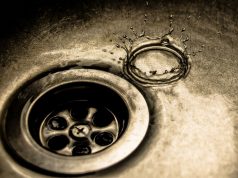
When it comes to managing residential properties in the UK, ensuring the safety and well-being of tenants is paramount. Implementing the right safety features is essential to create a secure and comfortable living environment. In this blog post, we’ll provide an overview of key safety features that residential property managers should consider from a British perspective. Whether you’re a property owner or a property manager, these measures will help ensure the safety of your tenants and protect your investment while adhering to British safety standards.
Adequate Lighting
Proper lighting is crucial for maintaining a safe residential environment, especially in the UK, with its varying weather conditions. Well-lit common areas, parking lots, hallways, and entrances deter criminal activity and help tenants feel secure. Ensure that all outdoor areas are well illuminated, particularly during the dark winter months. Regularly inspect and replace bulbs to maintain a well-lit property.
Security Systems
Implementing secure entry systems is an effective way to enhance residential property safety. Consider installing access control systems such as electronic key fobs, keypads, or intercoms at main entrances. These systems restrict unauthorised access and provide residents with an added layer of security. Consider installing security cameras in common areas to deter criminal activity and provide evidence in case of an incident, ensuring compliance with UK data protection laws. Additionally, consider engaging a reputable security company or utilising professional security personnel to ensure round-the-clock monitoring and assistance.
Smoke and Carbon Monoxide Detectors
Installing smoke and carbon monoxide detectors throughout residential units is vital for early detection and protection against potential hazards. There is a legal requirement to have functioning smoke detectors on each floor of a rented property, and carbon monoxide alarms are mandatory for any room with a solid fuel-burning appliance. They will require regular testing.
Fire Safety Measures
Implementing fire safety measures is crucial. Ensure that fire extinguishers are readily available in common areas, such as hallways and laundry rooms, and conduct regular inspections to comply with fire safety regulations. Install fire alarms and clearly mark emergency exits with proper signage. Regularly review and update your fire risk assessment to ensure compliance. Depending on the nature of the property, it also might make sense to install sprinklers; it is worth consulting with a fire sprinkler company like Base Sprinklers.
Regular Maintenance and Cleaning
Regular maintenance and cleaning are essential components of any residential property management plan. You need to conduct routine checks of electrical systems, plumbing, and heating to ensure they meet the necessary safety standards, as well as ensure the rest of the property is kept in good condition. You can partner with domestic and commercial cleaners to help ensure the property is kept to a good standard.
Emergency Preparedness
Create a comprehensive plan that outlines procedures for various emergencies, such as fires, floods, or medical emergencies, while considering the specific guidance provided by local authorities. Communicate this plan to tenants and conduct periodic drills to ensure everyone is aware of the necessary actions to take during an emergency, aligning with emergency response protocols.
Clear Communication Channels
Establishing clear communication channels with tenants is critical. Provide tenants with emergency contact information, including your own or a property management representative who can assist them promptly. Encourage tenants to report any safety issues or suspicious activities promptly, fostering a sense of security and demonstrating your commitment to their well-being.
To Conclude
Safety features are vital for maintaining a secure and comfortable living environment. By following the above advice, property managers can ensure the safety and well-being of their residents while adhering to UK safety regulations. Remember, prioritising safety protects tenants, safeguards your investment, and promotes a positive living experience.













